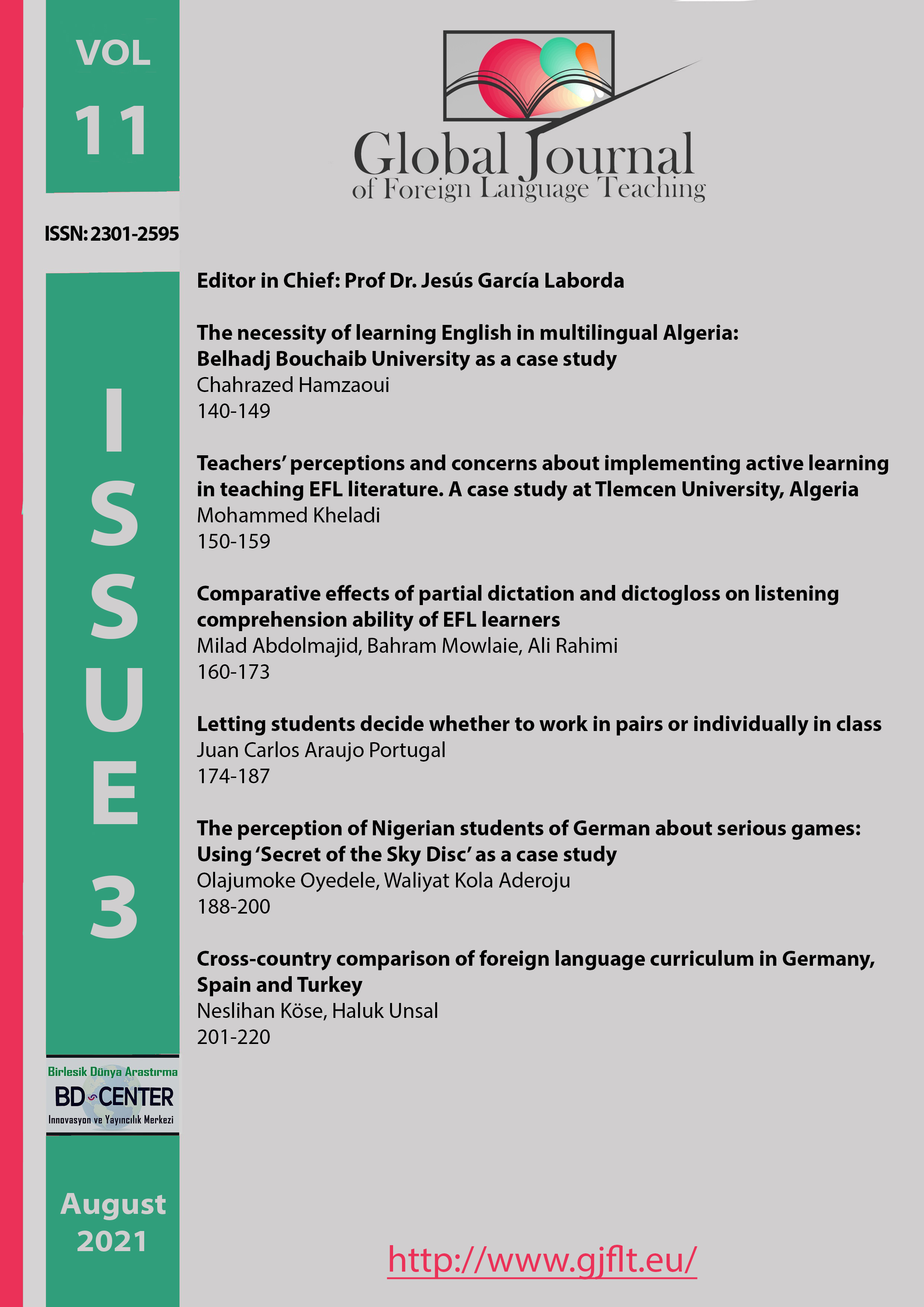Comparative effects of partial dictation and dictogloss on listening comprehension ability of EFL learners
Main Article Content
Abstract
TEFL teachers and scholars acknowledge the unique characteristics of listening skills and the vital role it plays in language learning and communication. The present study seeks to empirically investigate if partial dictation versus dictogloss has any significant effect on listening comprehension of Iranian EFL learners. Participants include 60 male EFL learners who were selected via double sampling and after taking the listening pre-test were randomly assigned to two experimental groups (partial dictation versus dictogloss) and a control group. A thorough analysis of the data using paired sample t-test indicated that the partial dictation group slightly outperformed the dictogloss group in the listening post-test and both experimental groups significantly outperformed the control group. The results can have implications for learners, teachers and material developers.
Keywords: Dictogloss, listening comprehension, partial dictation, EFL learners, comprehension ability.
Downloads
Article Details

This work is licensed under a Creative Commons Attribution 4.0 International License.
Authors who publish with this journal agree to the following terms:- Authors retain copyright and grant the journal right of first publication with the work simultaneously licensed under a Creative Commons Attribution License that allows others to share the work with an acknowledgement of the work's authorship and initial publication in this journal.
- Authors are able to enter into separate, additional contractual arrangements for the non-exclusive distribution of the journal's published version of the work (e.g., post it to an institutional repository or publish it in a book), with an acknowledgement of its initial publication in this journal.
- Authors are permitted and encouraged to post their work online (e.g., in institutional repositories or on their website) prior to and during the submission process, as it can lead to productive exchanges, as well as earlier and greater citation of published work (SeeThe Effect of Open Access).
